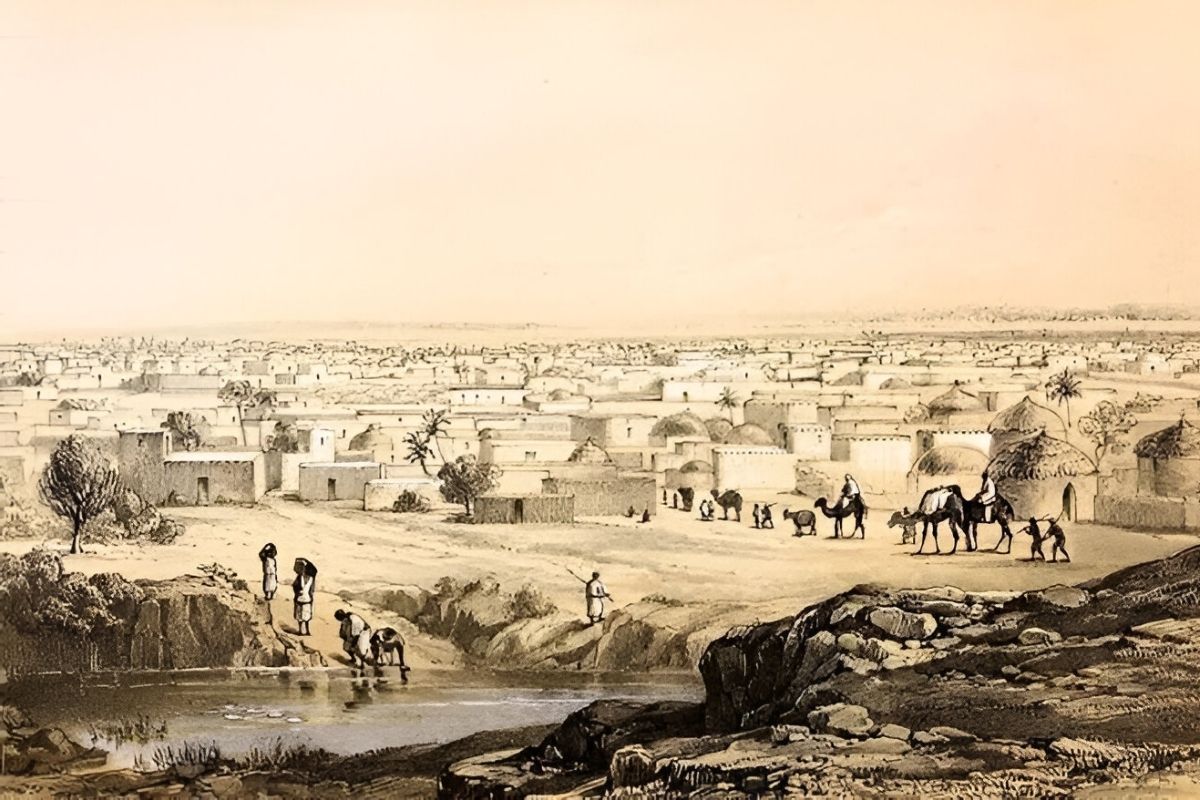
Did you know the British conquest of the Sokoto Caliphate marked a significant turning point in West African history? This event, which took place in the early 20th century, reshaped the political and cultural landscape of the region. The Sokoto Caliphate, once a powerful Islamic state, fell under British control after a series of military campaigns. Why did the British target the Sokoto Caliphate? They sought to expand their colonial empire and exploit the region's resources. The conquest had profound effects on the local population, altering their way of life and governance. Curious about the key events and figures involved? Let's dive into 25 fascinating facts that shed light on this pivotal historical episode.
Key Takeaways:
- The Sokoto Caliphate, a powerful Islamic state in West Africa, was conquered by the British in the early 20th century, leading to significant changes in the region's governance and culture.
- The legacy of the Sokoto Caliphate continues to influence West Africa, with its emphasis on education and administrative practices leaving a lasting impact on the region's intellectual and governmental landscape.
Background of the Sokoto Caliphate
The Sokoto Caliphate was a powerful Islamic state in West Africa during the 19th century. It was founded by Usman dan Fodio, a religious teacher, writer, and Islamic promoter.
- The Sokoto Caliphate was established in 1804 after a successful jihad led by Usman dan Fodio.
- It became one of the largest empires in Africa, covering parts of present-day Nigeria, Niger, and Cameroon.
- The caliphate was known for its advanced administrative system and educational institutions.
- It played a significant role in spreading Islam and Islamic culture across West Africa.
British Interests in West Africa
The British Empire had various interests in West Africa, primarily driven by trade, resources, and strategic control.
- The British were interested in the region's rich resources, including palm oil, cotton, and groundnuts.
- They aimed to control trade routes and secure markets for British goods.
- The British also sought to suppress the trans-Saharan slave trade, which was still active in the region.
- Establishing control over the Sokoto Caliphate was part of a broader strategy to dominate West Africa.
The Prelude to Conquest
Before the actual conquest, there were several events and maneuvers that set the stage for British control over the Sokoto Caliphate.
- The British signed treaties with local rulers to establish protectorates and gain influence.
- They built military posts and forts to secure their positions and protect their interests.
- Diplomatic missions were sent to negotiate with the leaders of the Sokoto Caliphate.
- The British used a combination of diplomacy and military pressure to weaken the caliphate's defenses.
The Conquest Begins
The actual military campaign to conquer the Sokoto Caliphate began in the early 20th century.
- In 1900, the British declared the Northern Nigeria Protectorate, which included parts of the Sokoto Caliphate.
- The British launched a series of military expeditions to subdue the caliphate's territories.
- The decisive battle took place in 1903, when British forces captured the city of Sokoto.
- The caliph, Attahiru I, fled but was eventually captured and killed by British forces.
Aftermath of the Conquest
The conquest of the Sokoto Caliphate had significant consequences for the region and its people.
- The British established direct colonial rule over the former territories of the caliphate.
- They implemented new administrative structures and introduced Western-style education.
- Traditional leaders were retained but were now subordinate to British colonial authorities.
- The British exploited the region's resources for their economic benefit.
Legacy of the Sokoto Caliphate
The legacy of the Sokoto Caliphate continues to influence the region to this day.
- The caliphate's emphasis on education and scholarship left a lasting impact on the region's intellectual landscape.
- Many of the caliphate's administrative practices were adopted by the British and later Nigerian governments.
- The Sokoto Caliphate remains a symbol of Islamic heritage and cultural pride for many in West Africa.
- The descendants of Usman dan Fodio continue to hold significant religious and cultural influence in Nigeria.
- The history of the Sokoto Caliphate and its conquest by the British is an important chapter in the broader narrative of African resistance and colonialism.
The Legacy of the British Conquest
The British conquest of the Sokoto Caliphate left a lasting impact on West Africa. It reshaped political boundaries, introduced new administrative systems, and altered the region's social fabric. The Sokoto Caliphate, once a powerful Islamic state, saw its influence wane under British rule. Traditional leaders were replaced or co-opted, and colonial policies often clashed with local customs. Despite these changes, the legacy of the Sokoto Caliphate endures in modern Nigeria, influencing its culture, religion, and politics. Understanding this historical event helps us grasp the complexities of colonialism and its long-term effects on societies. The British conquest serves as a reminder of the resilience of the Sokoto people and their ability to adapt and preserve their heritage amidst foreign domination.
Frequently Asked Questions
Was this page helpful?
Our commitment to delivering trustworthy and engaging content is at the heart of what we do. Each fact on our site is contributed by real users like you, bringing a wealth of diverse insights and information. To ensure the highest standards of accuracy and reliability, our dedicated editors meticulously review each submission. This process guarantees that the facts we share are not only fascinating but also credible. Trust in our commitment to quality and authenticity as you explore and learn with us.
